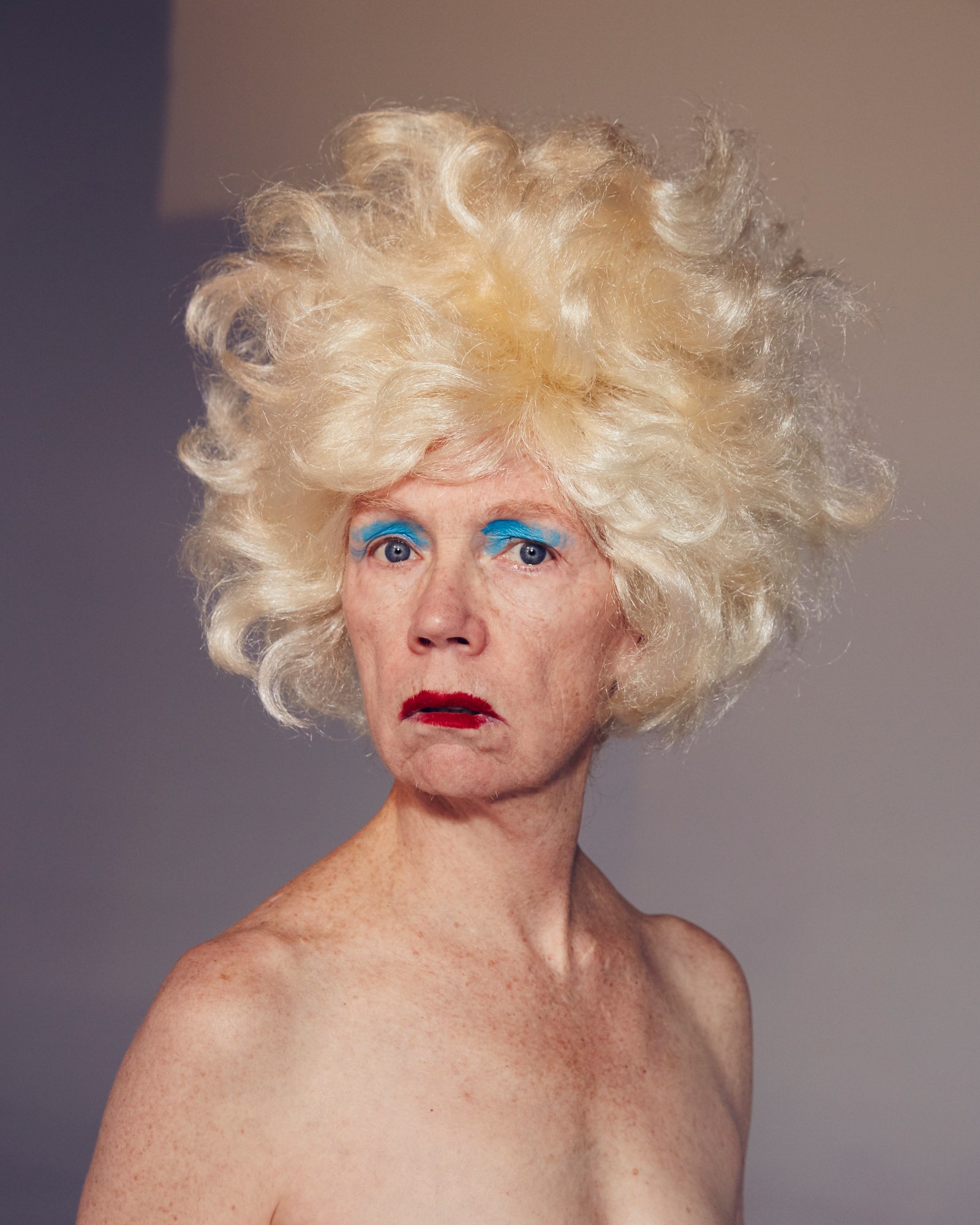Photographer Charlie Engman’s mother, Kathleen, has been posing for him for the past 11 years. The expansive body of photos, which has now been compiled into a book titled MOM, are not what one might consider typical familial or motherly images, and that’s sort of the point.
Across the project, Kathleen often assumes the roles of various whimsical characters. In some pictures she’s seen amidst pastoral scenery, wearing nothing but a coat and a coloured wig. In others, she appears clown-like, covered with face and body paint. The makeup and costuming are as essential as the different backdrops. In one bold image, for example, she poses in a pink gown with slicked hair inside a convenience store — as though calling in on her way home from the Met Gala to pick up snacks.
Shot over a period of 11 years, Kathleen’s hairstyles evolve throughout the book, aided by an impressive collection of wigs. The scope of the personas and range of moods seem to represent the way mothers often contort themselves for their children — with Kathleen doing exactly that for Charlie by offering herself up for his art — while also challenging society’s typically flat perception of older mothers, and of older women in general, whose appearances are often subject to scrutiny.
Kathleen’s facial expression remains unfazed, her body unedited. You can tell she’s serious about the work and proud of it. Still, there’s an air of playfulness to it. Kathleen rolls around in the dirt, dresses up like a sailor, and plays in the snow, all things she might have done with Charlie when he was a child.
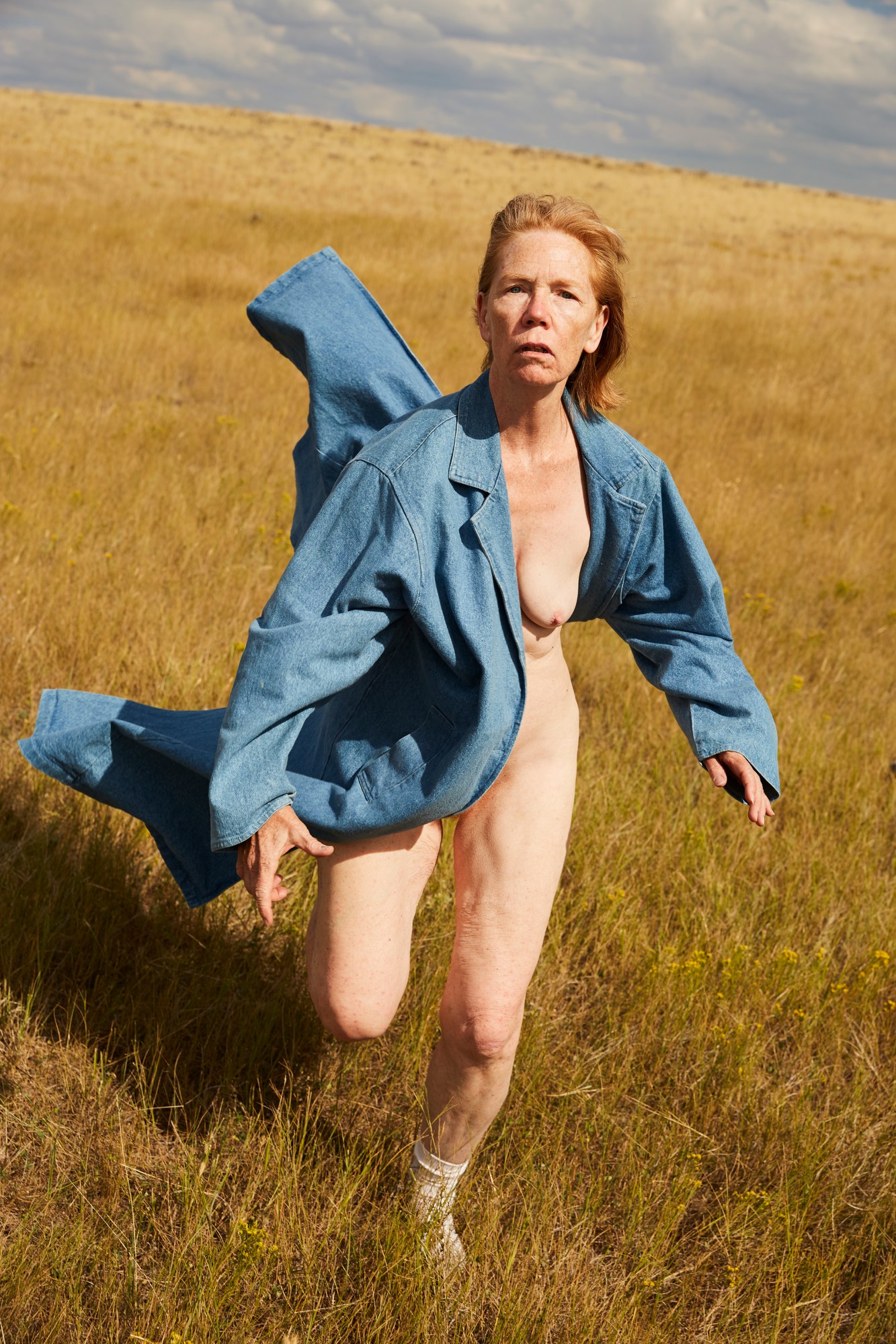
You might recognise Kathleen. In the past year, she has walked the runway for Collina Strada during NYFW twice. Charlie once interned for the brand’s designer, Hillary Taymour, and the two are now friends who collaborate frequently — most recently creating a capsule collection which was auctioned off online with proceeds benefiting a number of charities. To celebrate the release of their new book, i-D sat down with Charlie and Kathleen to talk about the origins of these photographs and how the collaboration is a testament to their relationship.
I’ve been following your work together for a while now. It’s really cool that you two have collaborated in such a creative, inventive way.
Charlie: It’s cheaper than therapy.
When did you start making art and practicing photography?
Kathleen: He drew before he could write. Charlie, would you please just get famous already so I can monetise your old junk?
Charlie: I don’t think I’ve ever really done anything else properly. I was really into drawing and painting and then I got into dance and performance because my sister danced and I’m competitive. I was in a theatre company when I was in high school, which was very formative for me. I started studying Japanese and Korean because it was an auxiliary interest of mine — I’m of the Pokémon generation and I have some personal ties to Japan. But I realised I was abandoning a pretty core part of myself, so I tried to weasel my way into the art school at Oxford. That’s when I started working with photography because it was a very accessible, practical way of making work. I don’t even think I even considered it a creative outlet. For me it was a tool of observation. I was surprised that it ended up as my primary method.
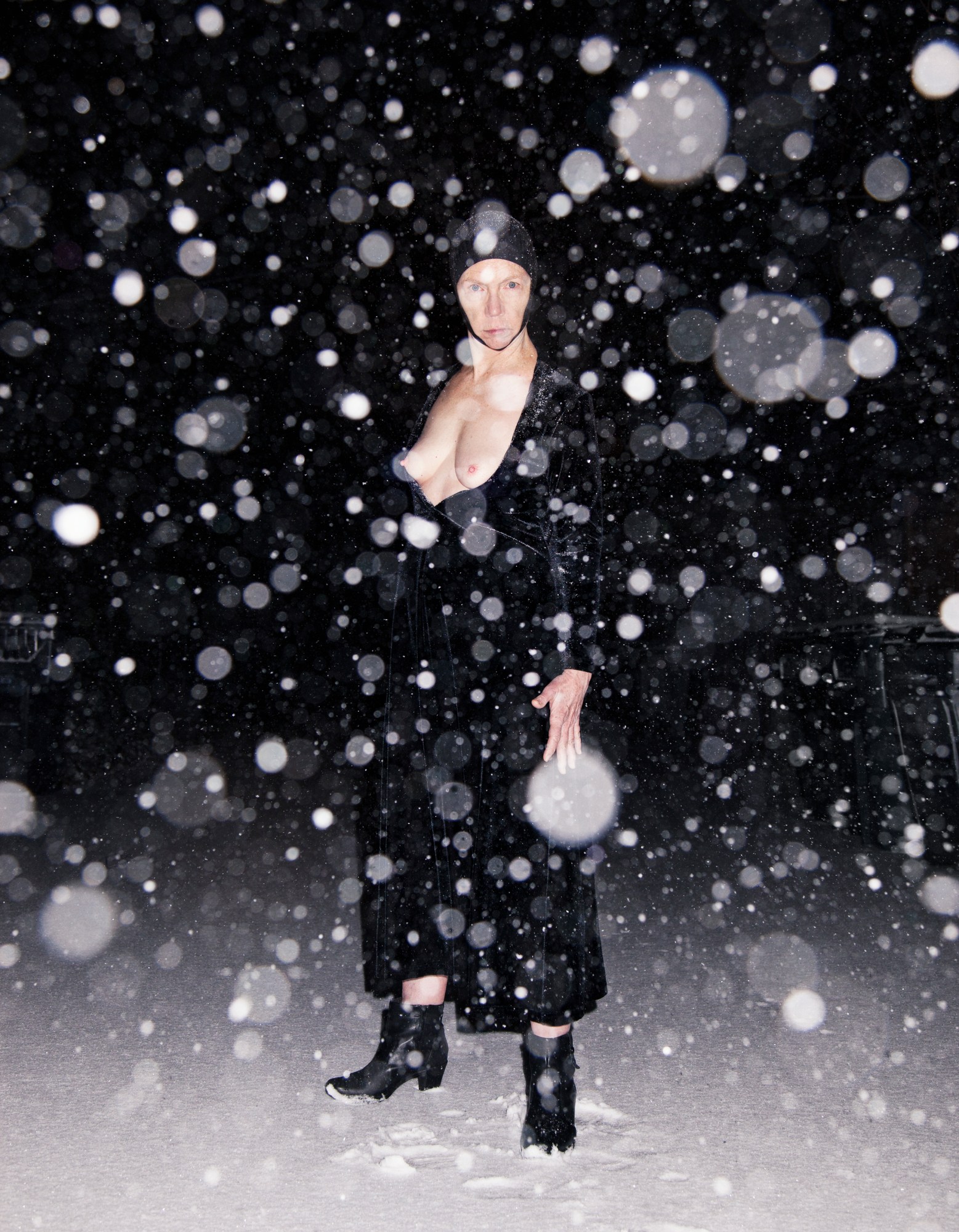
The book is so expansive. It’s interesting to see your reflection of each other in the work. Kathleen, it’s almost like Charlie is using you, his mom, as a sculpture. It seems very collaborative though and not just a two dimensional image. And I think knowing that it’s his mom, it makes it deeper because it speaks to the bond you have with each other.
Charlie: I’ve been thinking a lot about this idea of objectification, which is sort of what you implied, and not wrongfully so. The way that my mom sort of reacts to the work, which — disagree with me at any point, mom — but it seems there is a certain kind of empowerment or power in that objectification, like submitting yourself to it.
Kathleen: It’s not just the image maker (Charlie) and image subject (me). There is the consumer or the viewer. We have a responsibility for what we think we see and what we think it means. And when we talk about it, that’s where the ethics meet the road. It takes a lot of personal agency and courage or risk to be in his shoes, behind the lens if you will, directing it; or be in my shoes, trying to figure out what he is asking me to do and then trying to do it. But that’s not the only place. The risk you need to take is responsibility for taking things in and responding.
Charlie: Something that I think about a lot, especially now that the book is out, is who and what is the book for? Regardless of the concept or the intentions — and photography is an especially complicated place for that question because it’s such a subjective thing — what are the effects or consequences of it? I’m constantly surprised by the effects it has on my mom. And I’ve been tracking my own motivations for the work.
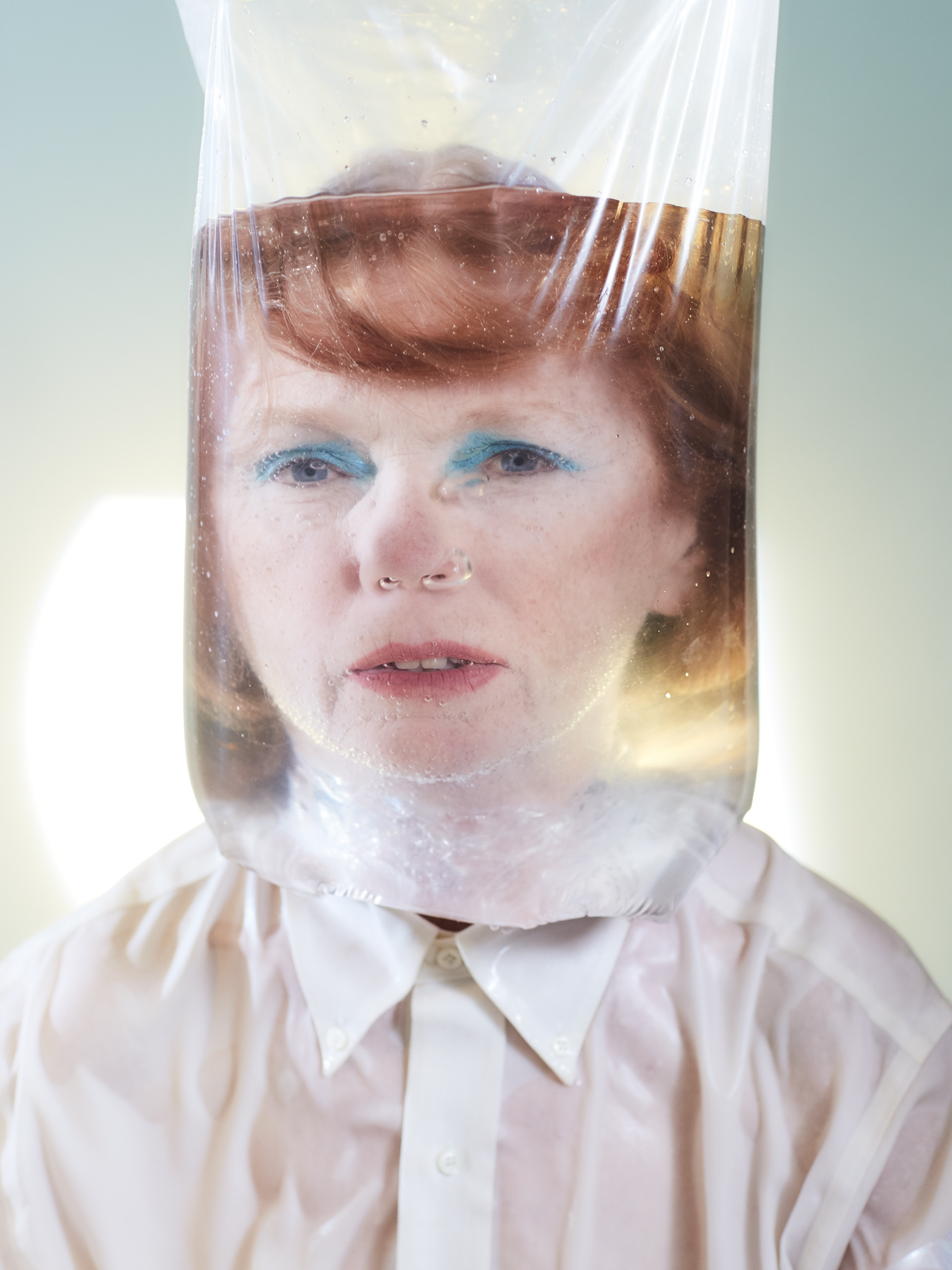
Where did you get that impulse to start creating this body of work?
Charlie: I was testing out strategies and I was just learning and playing and she offered herself in a very motherly way to be of service to me. When I moved back from college and lived at home on the couch for a while after my visa expired and didn’t know what I wanted to do, I was trying to make use of the situation. Here I was, back in my childhood, which felt very regressive, and I was making work of her.
As I started to become more professional in my approach and worked with other people, I started to realise that there was something unique about the experience I was having with my mom. Not only was there a sort of intimacy or familiarity between us that made the relationship substantively different, but as an individual she was different than most things that I encountered. She projected an energy that would have been foolish of me as a person, as a creative person, to ignore. When you become a young adult and you reach a certain age, you think you know everything. And certainly I thought I knew who my mom was or what her outlook was. But by involving her in something that disrupted our normal behaviour patterns with each other…
I can see now why you made the comment about therapy. It’s almost like you have to take a step back to make these sorts of connections.
Charlie: This idea of ‘mother’ has all sorts of learned expectations that are very unhelpful. But by looking and taking a step back, you can see things a little bit more for maybe what they are or what they are from a different shift in perspective.
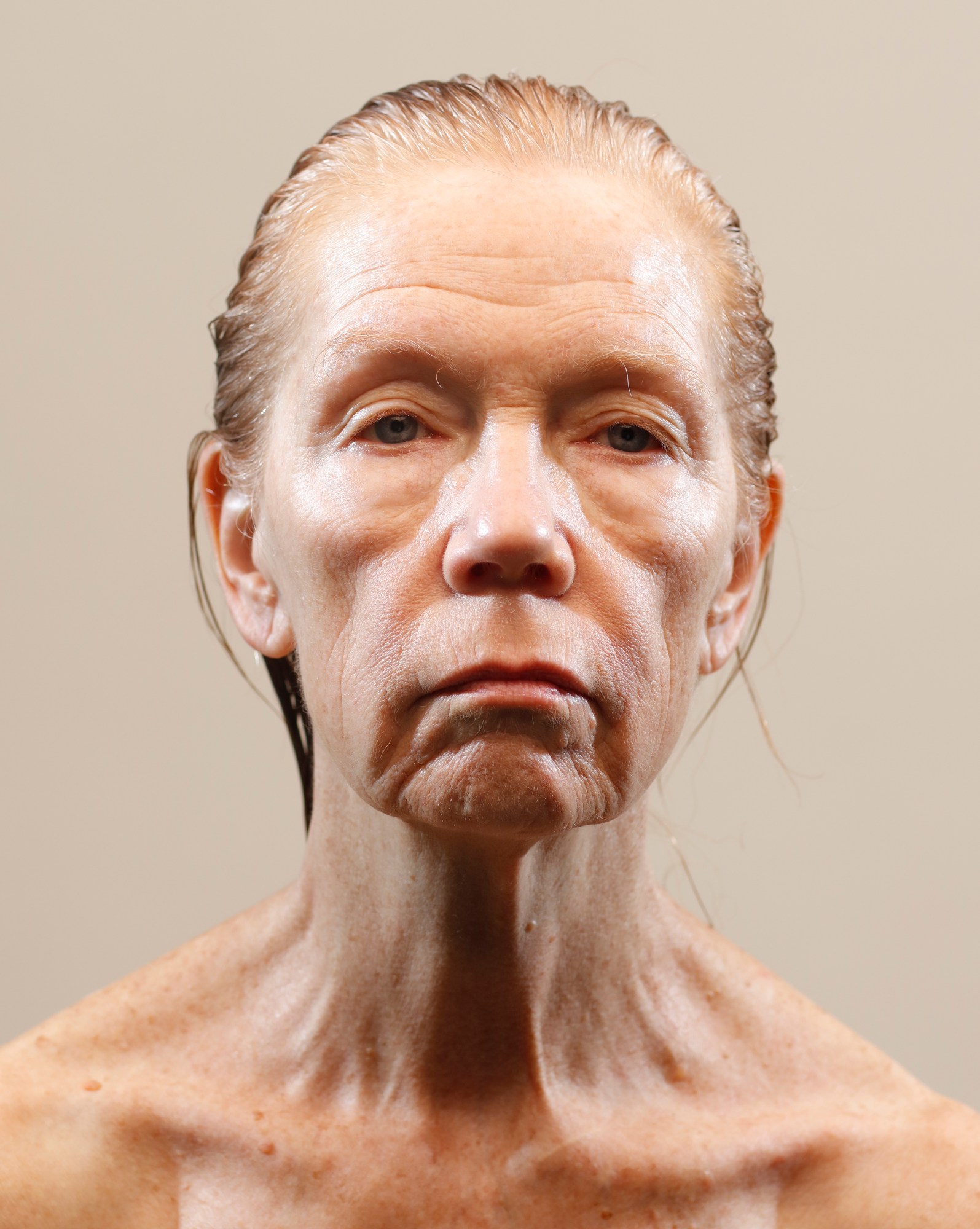
I want to hear more about how you came up with the different directions and scenes.
Charlie: I think it runs the gamut. There was a lot done with intention and then there’s some that were very spontaneous. There were some in the middle where I created a certain circumstance for an image and then my mom occupied the circumstance in her own way. The photos were taken over 11 years now. I love my mom but I don’t know if I could spend that much time with her. So the photos, were they all taken in different places? Charlie: We have definitely spent some intensive long periods together. There was a lot of intention but there’s also been a lot of other circumstantial things. It’s very much about play as well. It’s not necessarily like I’m setting out to achieve some kind of goal or we have this project that we’re trying to fulfil… I think it was enjoyable for both of us, you know? I’m also upfront with the fact that I knew to some extent that I could get her to do whatever I wanted. There was a little bit of a bratty substrate there, where I thought okay, if I want to try out some crazy wacky idea, I don’t have to convince her very hard. It can be very liberating when you’re working with a family member. Kathleen: One time we ran out of water in Death Valley, and I finally said, no, this is really the last shot, we have to go now. I mean it was more like, I’m out of energy. I can’t remember an argumentative or conflictual time either on the road or on set. That is part of this work. That doesn’t mean we never argue. I mean we have a healthy adult dynamic.
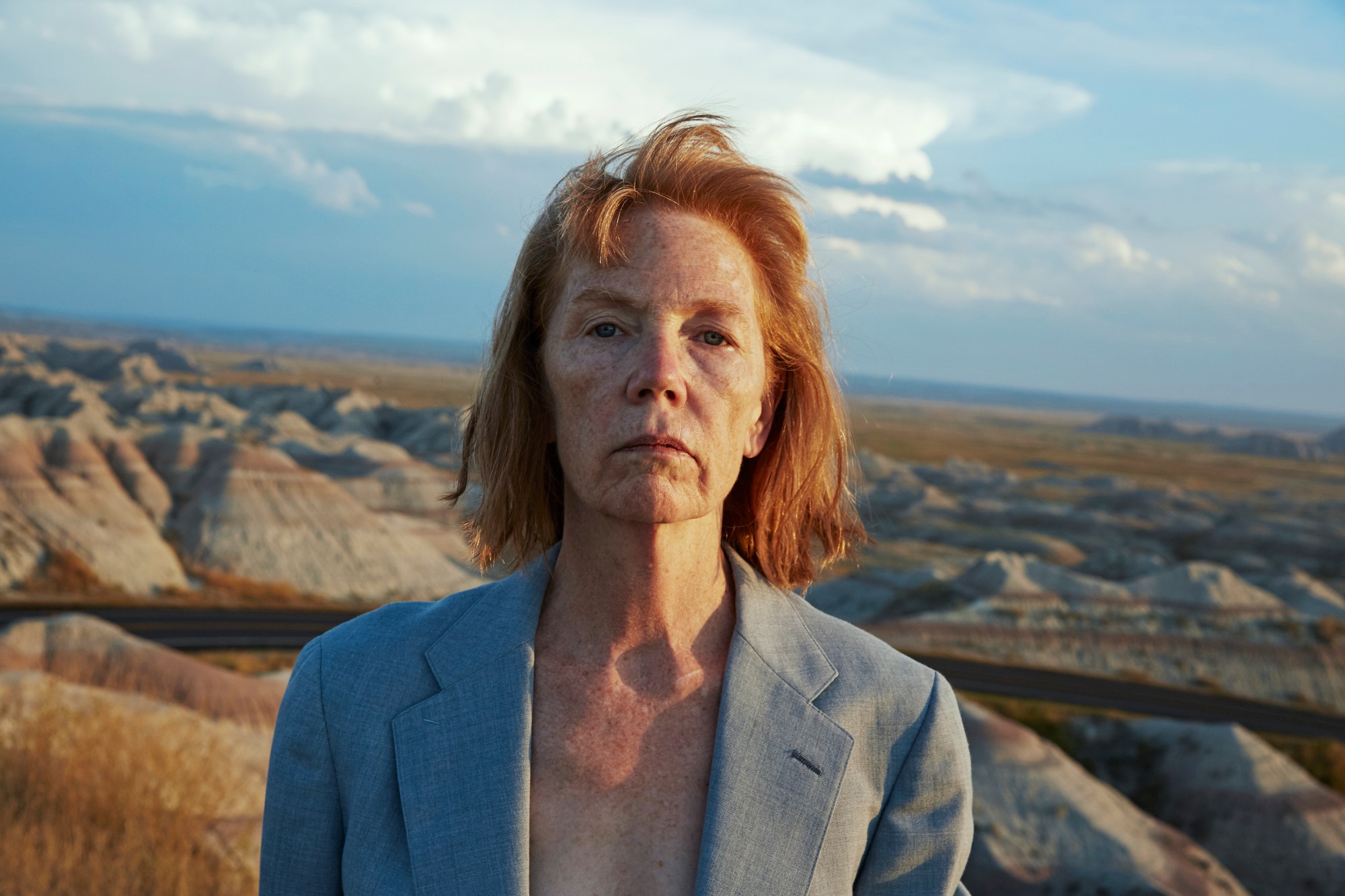
It seems like the work was created almost outside of your relationship in a way. Charlie: Yes and no. On the one hand, yes, it’s actually totally beside the point that it’s my mom. But on the other hand, it’s also totally instrumental. It’s my mom and the vibration between those two things is to me a very essential quality of the work. That to me is what’s interesting and motivating for me to continue doing it.
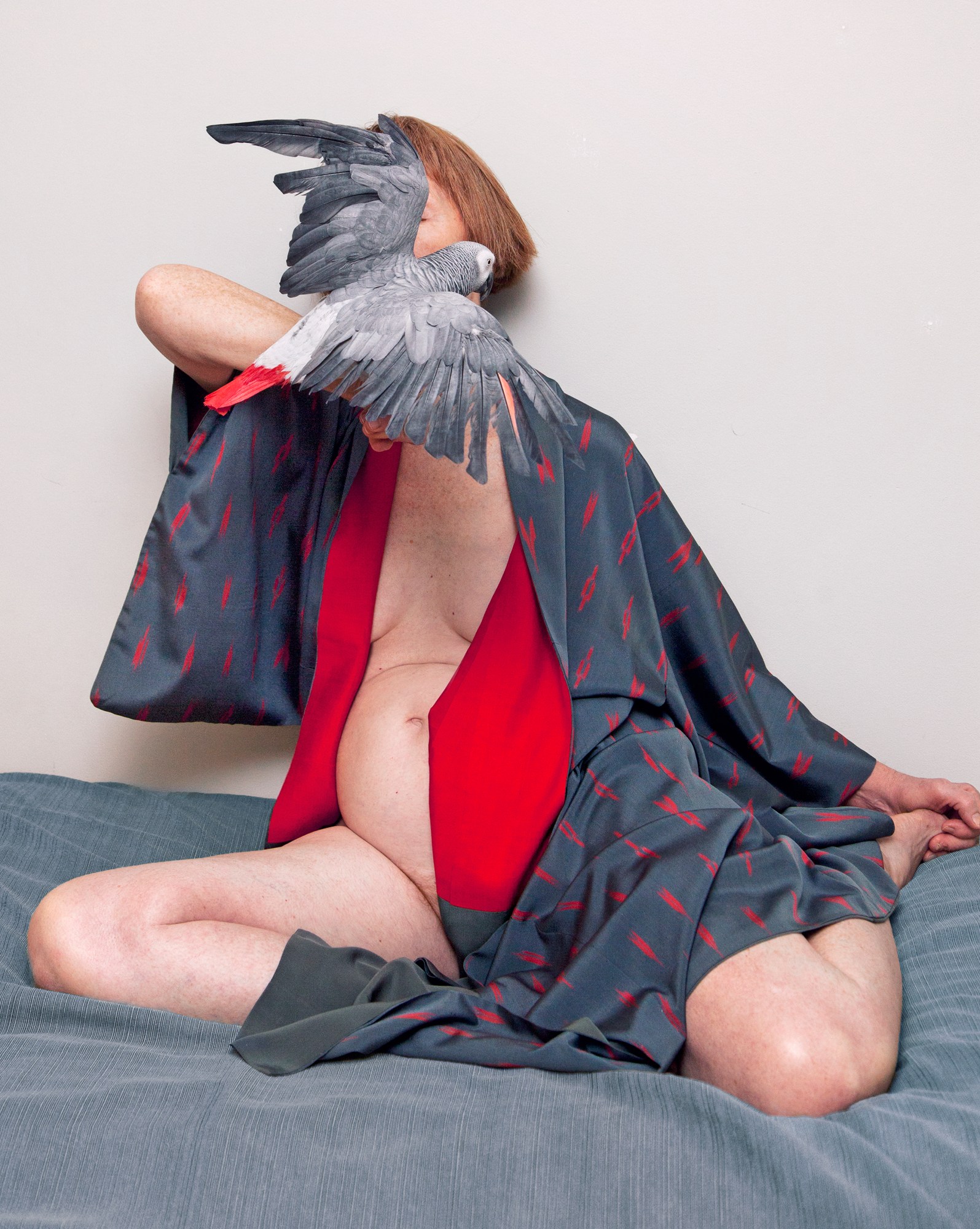
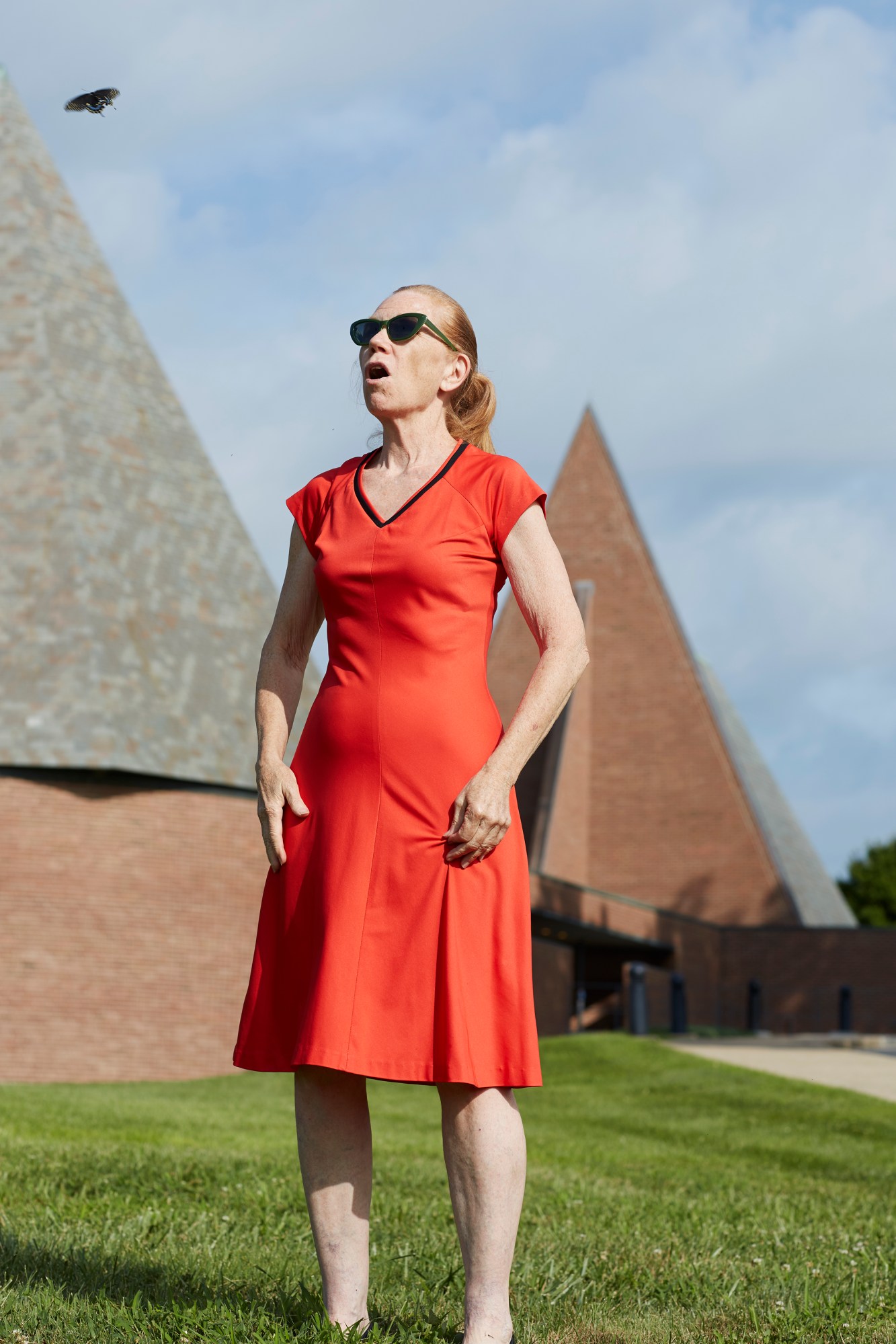
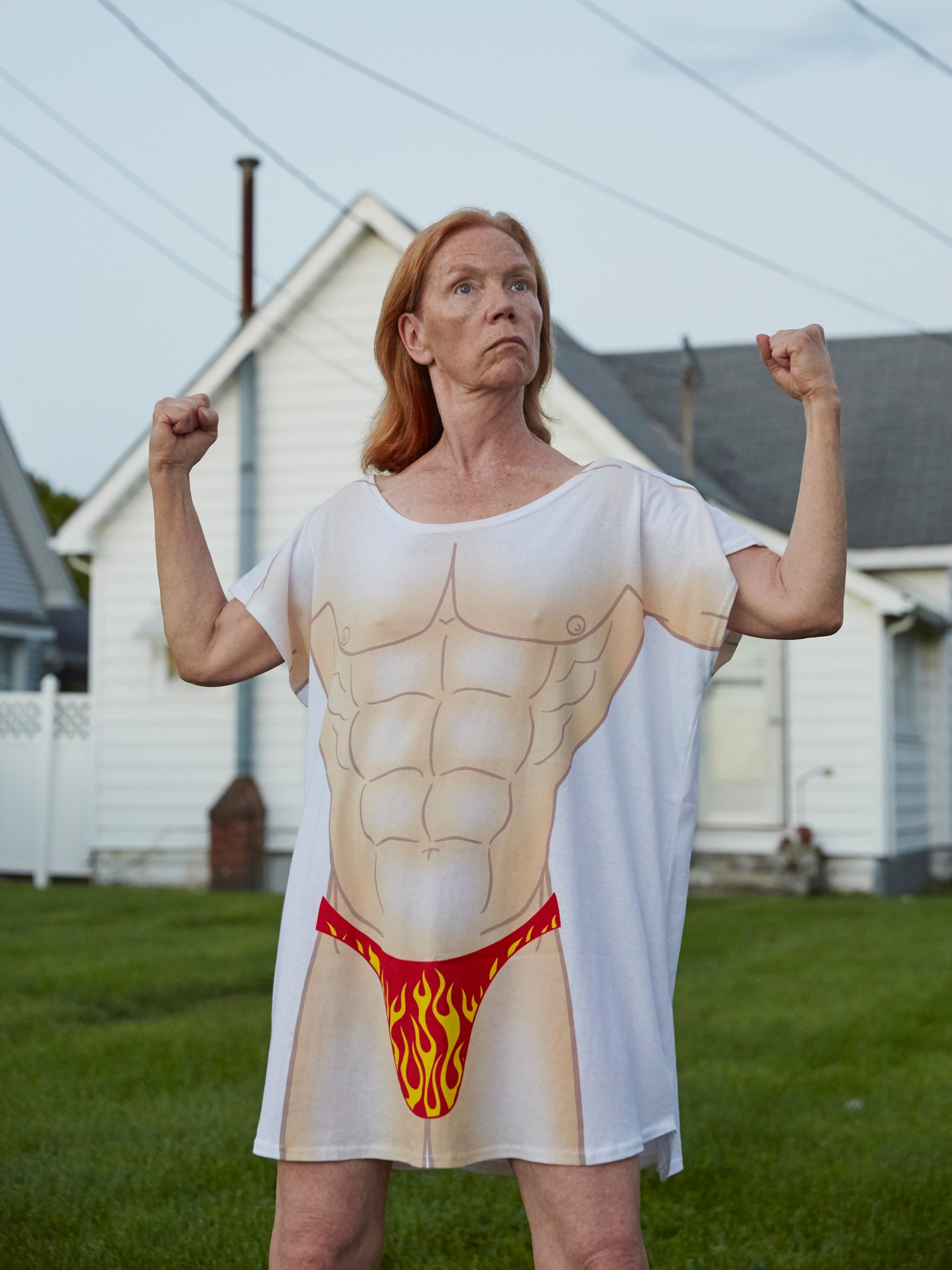
Charlie Engman’s MOM is out now and available here.
